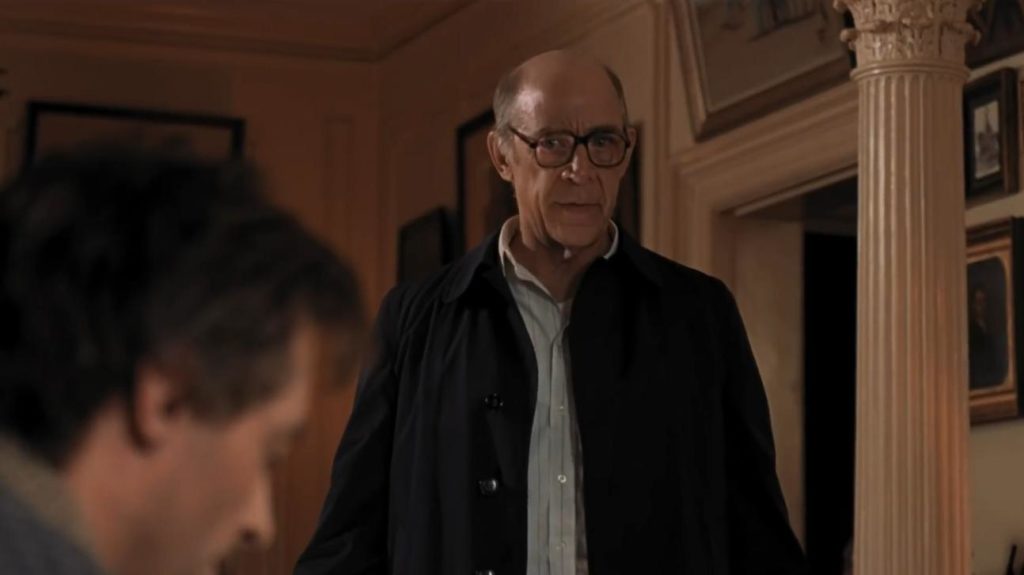An Affair to Remember
Directed by Jason Reitman / 2018
 Hey, do you remember a time, way-back-when, when politicians could engage in all manner of scandalous behavior, and no one would report on it, because no one cared? Yeah, me neither. That could be because such a time never really existed, or it could be because you were, like me, only coming of age, politically speaking, post-Gary Hart. Hart, you may recall, was a Senator who ran to be his party’s nominee for president in 1988 and was poised to win until a scandal broke and his campaign went down in flames. The Front Runner, a new movie from director Jason Reitman (Thank You For Smoking, Up in the Air) tells the story of that failed campaign. It’s a sharp, finely acted film.
Hey, do you remember a time, way-back-when, when politicians could engage in all manner of scandalous behavior, and no one would report on it, because no one cared? Yeah, me neither. That could be because such a time never really existed, or it could be because you were, like me, only coming of age, politically speaking, post-Gary Hart. Hart, you may recall, was a Senator who ran to be his party’s nominee for president in 1988 and was poised to win until a scandal broke and his campaign went down in flames. The Front Runner, a new movie from director Jason Reitman (Thank You For Smoking, Up in the Air) tells the story of that failed campaign. It’s a sharp, finely acted film.
The Front Runner starts in 1984, with Colorado Senator Gary Hart’s first failed bid to become the Democratic nominee for President. It’s the night he concedes defeat to the eventual nominee Walter Mondale and we meet the players who will have major roles four years down the road. There’s Hart himself, of course, played throughout the film with an intense self-righteousness by Hugh Jackman (When Hart confronts a trio of reporters in an alleyway later in the film, I was worried that not everyone was going to be walking away from that encounter). We meet Hart’s wife, Lee (Vera Farmiga, The Commuter), and we meet Hart’s chief campaign strategist, Bill Dixon (J.K. Simmons, Juno, Whiplash, and an MVP in any movie he’s in). Hart’s lost his campaign, but he’s not defeated. He knows this was just a trial run, to get his name out there. The real fight, he figures, will be in 1988.

And so it seems. In ‘88, Hart quickly jumps to the front of the pack of candidates, winning early primaries and quickly becoming a media sensation. He’s a golden boy and everything (then) Vice President Bush is not. Hart’s young, eloquent, inspiring and can throw an axe like a pro. It seems like the nomination is his for the taking, and then the White House.
[The Front Runner is] a sharp, finely acted film.
Yeah, except we all know that’s not what happened, right? Hart meets a young woman, Donna Rice (Sara Paxton, Last House on the Left), and reporters observe her entering Hart’s DC townhouse- and then not leaving. Hart denies any impropriety (and still does, reportedly, to this day), and he’s incensed that this is even considered newsworthy at all. The press persists in asking the questions, and his campaign quickly bogs down amid rumor, innuendo, salaciousness, and late-night talk show jokes.
Director Reitman also co-wrote the screenplay along with Jay Carson and Matt Bai. It’s a sharp movie with a story that almost verges on an ensemble piece. Though Jackman, as Hart, obviously has the lion’s share of screentime, The Front Runner pays more than enough attention to the supporting characters. Paxton, as Rice, has a handful of heartbreaking scenes as she comes to realize that her life is going to be defined by this scandal for a very long time to come. Simmons is also, unsurprisingly, great.

If The Front Runner has any sort of weakness, it’s in its lack of point-of-view. Where does Reitman’s movie stand? Is it with Hart, who believes that his private life should be off-limits, even if he pursues extra-marital affairs while preaching morality? Is it with the reporter for the Washington Post who says that Hart’s affairs reflect poorly on his real character and demonstrate a contempt for women? Is it with the Miami Herald, who saw an opportunity to break a story on a possible scandal because “the people” deserve to know if their leaders are liars? Okay, it’s not with the Herald, as the reporters who break the story are portrayed as sleazy and sloppy investigators. Otherwise, the film doesn’t commit. Jackman, as Hart, is fiery and passionate in his insistence that he can still have a ‘private life,’ but Dixon knows that just isn’t going to be possible for a presidential candidate, and Hart seems naive to feel otherwise.
Not having said point-of-view seems like a pretty big misstep
And not having said point-of-view seems like a pretty big misstep when releasing a movie about this subject at this moment in American history. Hart’s flameout taught future politicians some valuable lessons. But what they learned wasn’t that they should step carefully while in the public spotlight and hold to a higher ethical standard, its that when caught, they should just deny fervently and aggressively until the public tires of the questions. It worked against unsubstantiated accusations in ‘92, and it worked against actual videotaped confessions in ‘16.


